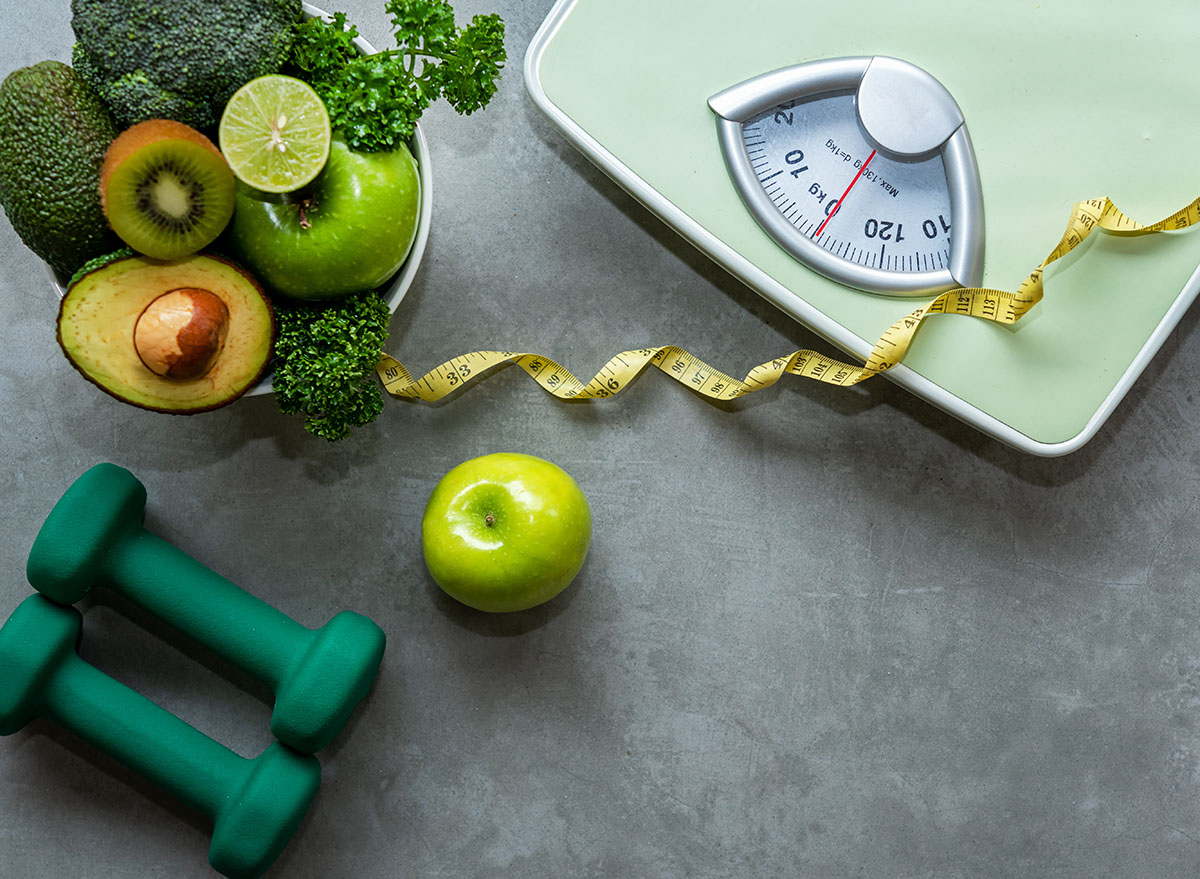This One Diet Melts Fat Faster Than Any Other, Say Experts

Most experts suggest that you start losing weight at a slow and steady pace by adopting healthy lifestyle habits that you can stick to over the years. That way, you can lose weight and keep it off.
“Losing weight slowly and setting realistic expectations is always a challenge; however, I feel this is the best way to make lasting changes. It’s about lifestyle modifications that my patients can adapt to and maintain,” says Alexander Lightstone Borsand MD, ABLM, a board-certified Lifestyle Medicine physician with extensive experience with weight loss.
But if you could lose weight faster and still get the same results, wouldn’t you want to?
Several studies have found that rapid weight loss may be just as effective in the long run as slow weight loss. Plus—fast weight loss has the added benefit of giving you results more quickly, which Dr. Borsand says can serve as a big confidence booster.
“Losing weight quickly can be helpful to get my patients to see some change, not only in the numbers on the scale but also in their health,” he says.
So, how can you actually lose weight quickly?
Experts say that one of the best diets that melts fat fast is intermittent fasting or IF.
Dr. Borsand recommends the 16/8 IF diet, as it “allows for the optimization of certain hormones that promote lipolysis, or the breaking down of fat for energy.”
The 16/8 method involves fasting every day for 16 hours and restricting your daily eating window to 8 hours. That usually means your first meal will be around noon and your last meal at 8 pm.
If that IF diet is a bit too extreme for you, you can also try the 14:10 method, according to Dr. Pamela Peeke, chairman of the Jenny Craig Science Advisory Board.
“In a study published in Nature, researchers found that the 14:10 method of intermittent fasting — meaning fasting for 14 hours and eating for 10 — provides optimal weight loss, especially when a person ideally finishes eating in the early evening, allowing the body to rejuvenate during the evening. That’s because this form of intermittent fasting follows our natural 24-hour circadian rhythm,” says Dr. Peeke.
You may have assumed that the keto diet — which encourages you to remove carbs from your diet so that your body has to switch to burning fat for energy instead of carbs — is the best diet for fat loss, but Rachel Benight MS, RD/LD, CPT, a Registered Dietitian, and NASM-Certified Personal Trainer says that’s not the case.
“Low carb diets, like keto, are often touted for rapid weight loss, but this is actually due to the depletion of glycogen (stored carbohydrates in the liver and muscle). Carbohydrates cause the body to hold onto three to four times more water compared to protein and fat, so when there is a drastic reduction, it will lead to rapid ‘weight loss,'” Benight says.
How to optimize the IF diet for even faster fat loss.
To lose fat even faster, dietitians and doctors recommend adding a little more structure during your eating window by eating the right macros.
In traditional IF diets, oftentimes you’ll hear that as long as you fast for 14 to 16 hours, you can eat whatever you want during your 8- to 10-hour eating window. That means that theoretically you could be scarfing down pizza, doughnuts, and cookies all day and expect to lose weight solely based on the fact that you’ll be eating fewer calories than you did before you started dieting.
But eating whatever you want during your eating window is not the best way to approach fast fat loss.
“While being in a caloric deficit is necessary for fat loss, the composition of those calories is very important,” explains Benight. “Calories are made up of macronutrients or ‘macros’ for short. Consuming the right balance of protein, fat, and carbohydrates will ensure that our body is efficiently breaking down body fat rather than muscle and/or water.”
“Eating the right balance of macronutrients will also ensure that the diet process doesn’t cause unwanted symptoms like unwanted cravings, brain fog, low energy, and poor sleep,” Benight adds.
Dr. Borsand recommends adding more healthy fats to your diet because “fat increases satiety, or the feeling of being full.”
Another macronutrient you should focus on is protein. “Not only does the protein help to keep [you] feeling full, but it also ensures limited muscle loss,” says Morgyn Clair, MS, RDN, a registered dietitian nutritionist for Sprint Kitchen. Clair recommends meeting your macro needs with the help of a protein supplement with at least 20 grams of protein per serving.
She also recommends including at least 30 grams of protein in one solid meal per day. (To help you, we’ve put together these 19 High Protein Breakfasts That Keep You Full.)
For more on how you can optimize fast weight loss with IF, don’t miss these 20 Best Foods to Eat While Intermittent Fasting.
For more healthy eating news, make sure to sign up for our newsletter!








